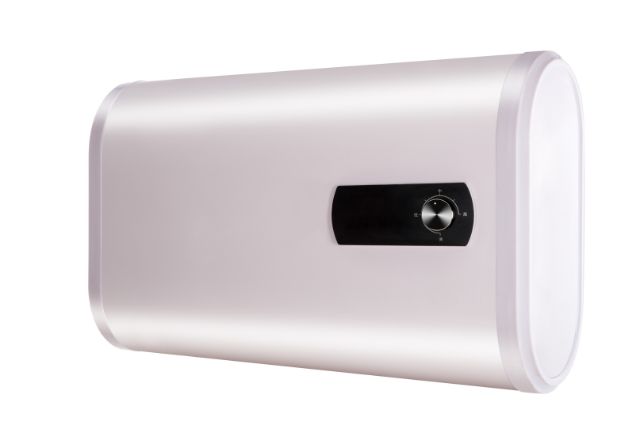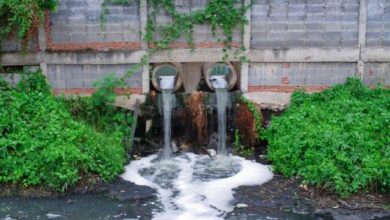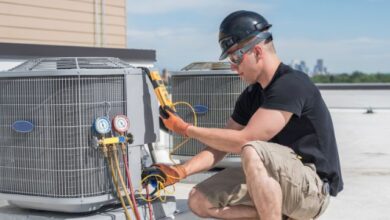Can a Hot Water Heater Be Repaired? Exploring Your Options

Hot water heater issues can manifest in various ways. It may not produce hot water, provide little hot water, run out of hot water too quickly, make strange noises, or even leak.
Understanding these issues is crucial, as they give insight into the overall condition of your water heater. Once you recognize the signs of a malfunctioning heater, you’re faced with the decision: repair or replace?
This choice hinges on several factors, including the age of the unit, the nature of the problem, the cost of repair versus replacement, and how often the unit has needed repairs in the past. In many cases, minor issues can be repaired easily, extending the lifespan of your heater. For example, this Carlson Plumbing Company offers water heater repair in Vancouver. But replacement might be the more cost-effective and reliable solution for more significant problems or if the unit is old and frequently malfunctioning.
Typical Problems And Solutions for Hot Water Heaters
Water heaters are generally reliable but can encounter various issues over their lifetime. Understanding these problems and their potential solutions can help you make informed decisions about repairing or replacing your unit.
- No Hot Water: If your water heater isn’t producing hot water, it could be due to a malfunctioning thermostat or heating element, especially in electric water heaters. It could be due to a problem with the pilot light or the gas control valve for gas heaters. A professional plumber can accurately diagnose and fix the issue.
- Not Enough Hot Water: When your water heater isn’t producing enough hot water, it may be because the unit isn’t large enough to meet your home‘s hot water demand. Alternatively, it could be due to an issue with the heating elements or a dip tube that has broken or deteriorated. In such cases, the solutions might range from replacing the faulty components to upgrading to a larger unit.
- Water Temperature Too High or Too Low: If your hot water is too hot or too cold, the thermostat might be set incorrectly or malfunctioning. A simple adjustment or thermostat replacement could resolve the issue. However, if the problem persists, consulting with a professional is best.
- Leaking Water Heater: Leaks can result from several issues, such as a faulty temperature and pressure relief valve, a leak from the tank itself, or even loose connections. Depending on the cause, the fix could be as simple as tightening a connection or as complex as replacing the whole unit.
- Unusual Noises from the Heater: If your water heater makes unusual noises, like rumbling, popping, or hissing sounds, it could be a sign of sediment build-up in the tank, a faulty heating element, or high pressure. A thorough cleaning or part replacement might solve the problem, but if not, it could indicate a more serious issue that requires professional attention.
Repairing a Hot Water Heater: A Closer Look
Water heater repairs are complex tasks best left to professionals due to the technical knowledge required and the potential safety risks involved. However, it can be helpful to understand the process and safety precautions involved.
The Process of Repairing a Hot Water Heater
Repairing a hot water heater typically starts with diagnosing the issue.
- The plumber first checks the thermostat settings.
- The plumber tests the heating elements in an electric heater or the pilot light and gas control valve in a gas heater.
- If a component like a heating element or thermostat is faulty, the plumber will replace it.
- For issues like leaks or unusual noises, the plumber will inspect the pressure relief valve, the tank, and the connections or flush the tank to remove any sediment build-up.
Safety Precautions During Repair
During the repair process, various safety precautions must be followed. First, the power or gas supply to the heater should be turned off to avoid electrocution or gas leaks. The water supply should also be turned off if there’s a water leak. Plumbers must also use the correct tools and protective gear, especially when working with electrical components or high-pressure systems. Lastly, once repairs are done, the system should be thoroughly tested to ensure everything is working correctly and safely before it’s put back into regular use.
When Is a Hot Water Heater Beyond Repair?
Water heaters don’t last forever, and there are times when replacement becomes a more reasonable option than repair. One key factor to consider is the age of the water heater. Most heaters are designed to last between 10 to 15 years, and if your heater is reaching the end of this range, replacing it with a newer, more efficient model might be more cost-effective.
Frequent breakdowns indicate that your water heater might be beyond repair. Those costs can quickly add up if you constantly have to call in for repairs. Plus, the hassle and inconvenience of repeated disruptions to your hot water supply are other factors to consider. Inefficiency can be another issue. If your heater isn’t heating your water as well as it used to, or if it’s taking a lot longer, it might be time for a replacement.
Significant leaks or structural damage to your water heater are also a clear sign that replacement might be the best option. If your heater is leaking significantly or the tank is damaged, it’s usually not repairable, and using a damaged heater can pose safety risks. It’s best to consult a professional plumber to discuss replacement options in such cases.





